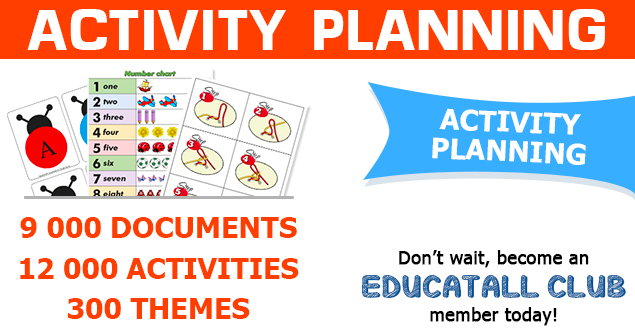
Performance anxiety-How to intervene
Although performance anxiety is more common in school-aged children, it can often be traced back to the preschool years. Being nervous about a task that must be completed, being afraid of making a mistake, and avoiding various tasks due to a lack of self-confidence (and not a lack of interest) are all behaviours that you may notice in preschool-aged children. Although performance anxiety is subtle at this age, early childhood educators must be aware of the important role they play in building positive self-esteem in children.
Performance anxiety is present when the fear of failure or being judged is so important that a child is paralyzed. Often induced by a child’s parents or other adults in his immediate family, performance anxiety can manifest itself through “stage” fright or nervousness in any situation where the child must demonstrate his abilities. It can cause intense uneasiness.
In daycares, children face few “performance-based” tasks. Nonetheless, performance anxiety begins during the preschool years. Several studies have examined this form of anxiety. We now know that it is not a single factor, but a combination of factors that affect children. Their temperament, demanding parents, being surrounded by perfectionists, the fact they are used to receiving a lot of praise, not wanting to disappoint, fear of failure, or the inability to accept failure are all factors that can influence children.
Although you are not the only adult who can influence the children you work with, adopting certain actions and attitudes can be helpful. Here are a few tangible suggestions that may reduce the impact of performance anxiety or its development.
- Positively reinforce children, but avoid the over-use of positive reinforcement. Of course, congratulating children for good behaviour or accomplishments is important for building their self-esteem. However, too much positive reinforcement can lead children to constantly seek the approval of others.
- Avoid games involving competition. Children who will deal with performance anxiety later in life have difficulty tolerating setbacks and failure. Avoid games that emphasize children’s performances. Instead, offer games that can be enjoyed as a group and congratulate children for their efforts instead of results.
- Shower children with positive messages to increase their sense of competence. Tell them things like, “You can do it.”, “I am right behind you.”, or “There’s nothing wrong with making a mistake.”
- Help children manage their stress through relaxation and breathing exercises. Remember that everything you teach them during their preschool years will follow them and make a difference in their academic progress.
If you notice that a child is experiencing any sort of difficulty that may be linked to performance anxiety, do not hesitate to discuss the situation with his parents. Together, you can find the best solutions to help the child. The consequences of performance anxiety can seriously impact a child later in his life. The preschool years are very important for building a solid foundation.
Maude Dubé, Specialized educator

 Home
Home Theme activities
Theme activities
 Babies and toddlers
Babies and toddlers
 Arts and crafts
Arts and crafts
 Science
Science
 Creative recipes
Creative recipes
 Tips and tricks
Tips and tricks
 Special needs
Special needs
 Extra activities
Extra activities
 Educ-TV
Educ-TV
 Newsletter
Newsletter  Online store
Online store Educatall club
Educatall club

